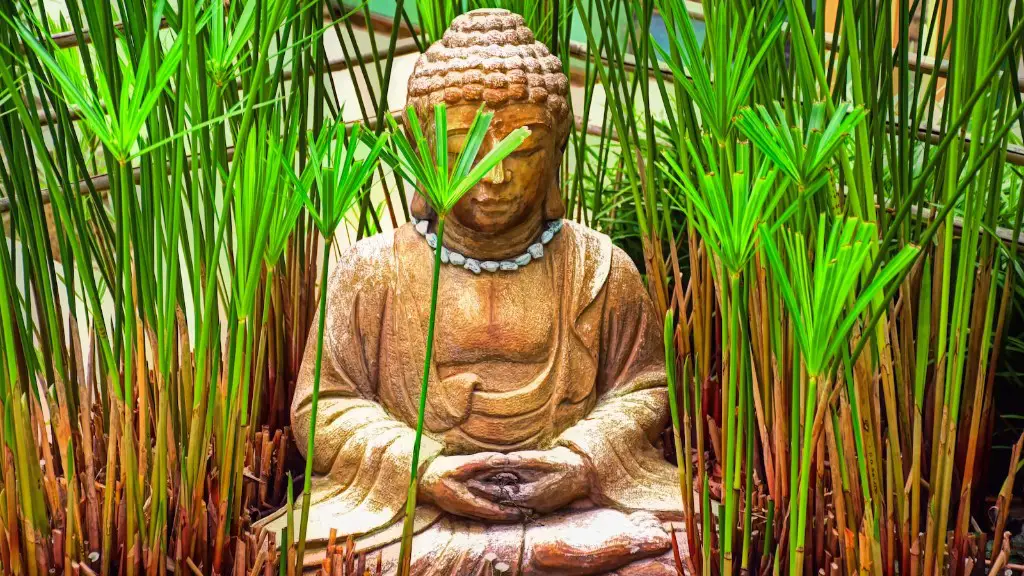Sacred Texts
Hinduism is an ancient religion of India with its origins said to date back to 1500-1000 BCE. Its primary texts are the Vedas, which are the oldest scriptures in any Indo-European language. The Rigveda and Atharvaveda are the oldest and most important of the four Vedas. In addition to these, there are other important Hindu texts such as the Mahabharata, Ramayana and Upanishads. These texts are believed to be divinely inspired and provide insight into Hindu beliefs and practices.
Cultures & Ideologies
Hinduism is an all-encompassing network of various philosophies and traditions, which vary from region to region and sect to sect. As a result, the exact date of origin for Hinduism is difficult to pinpoint. However, it is believed to be at least four thousand years old and includes the concepts of dharma, karma, and reincarnation. Dharma, the central concept of Hinduism, refers to a universal law of righteousness that binds Hindus into a greater religious unity. Through the practice of good deeds and adherence to dharma, Hindus aim to liberate themselves from the cycle of karma and reincarnation.
Gods & Goddesses
The gods and goddesses of Hinduism are an integral part of its practice. The Trimurti are three of the most important deities worshipped by Hindus. These are Brahma (the creator), Vishnu (the preserver), and Shiva (the destroyer). Additionally, there are numerous other gods and goddesses such as Ganesha, Lakshmi, and Hanuman. Hindus believe that these deities possess the power to intervene in human affairs and protect the faithful.
Symbolism
The Om or ॐ symbol is one of the most recognizable symbols of Hinduism. It is essentially a religious chant composed of four sounds and is considered to be a sacred sound, encapsulating the entire universe. Other symbols commonly associated with Hinduism include the Swastika, lotus flower, and the Trishula (three-pronged spear). All of these symbols are believed to possess spiritual qualities and are thought to protect the faithful from evil.
Rituals, Practices & Traditions
The rituals and practices of Hinduism, like its symbolism, are varied and diverse. Hindus practice various rituals such as prayer and offerings to the gods. In addition, the practice of yoga is also commonly associated with Hinduism and is believed to be a path to inner peace and enlightenment. Other important practices include pilgrimage and austerities, which help cultivate devotion and spiritual growth.
Philosophies & Beliefs
Various Indian philosophers have advanced different philosophical interpretations of the religion. For example, the Upanishads elaborated on the Vedic doctrine of the immortal soul, while the Bhagavad Gita provided guidance on different paths of liberation. In addition, Advaita Vedanta, a philosophical system involving the renunciation of worldly desires and enlightenment, has become a popular interpretation. Other beliefs commonly associated with Hinduism include belief in the cycle of karma and reincarnation.
Religion Today
Today, Hinduism is one of the world’s oldest major religions. It is practiced by over a billion people and is the predominant religion of India and Nepal. Although the exact origin of Hinduism is difficult to pinpoint, its centuries’ old legacy has had a lasting impact on cultures around the world.
Regional Differences
The beliefs, symbols and rituals associated with Hinduism vary from region to region. In South India, for example, the patron deity is Murugan, a popular form of the god Shiva. Meanwhile, in North India, Hindus worship various gods, such as Vishnu and Shiva. Additionally, the temples of South India are highly influential and often express a mixed architectural styles of both Hindu and Muslim cultures.
Growth & Spread of Hinduism
Hinduism has had a significant impact on countries outside of India throughout its history. During the European colonial period, Hindus influenced the religious, social, political and philosophical landscape of many parts of the world. This impact is still evident in countries such as Mauritius and Guyana, where sizeable Hindu communities have grown over time due to migrants from India.
Influence on Other Religions
Hinduism has had a strong influence on various other religious traditions. From Buddhism, Jainism and Sikhism, to the New Age movement, Hindu concepts have been adopted by a wide variety of beliefs. These include the concept of karma, reincarnation, meditation and enlightenment. Many of these beliefs have also been embraced by non-Hindu groups, as a result of Hinduism’s status as a global religion.
Role of Women in Hinduism
Hinduism has traditionally held the view that women are inferior to men, having traditionally given them fewer rights, privileges, and opportunities than men. This view has lessened in recent times, with women gaining more freedom and rights. Nevertheless, some restrictions remain due to the traditional patriarchal system still in existence in some places. In particular, women are still viewed as subordinate to men in matters of religious practice and faith.
Cosmopolitanism & Tolerance
Hinduism is known for its tolerance and cosmopolitanism, emphasizing the importance of all faiths and religious rites. This has resulted in temporal peace and harmony within the Hindu community, and has allowed it to coexist harmoniously with other religions, such as Sikhism, Jainism and Buddhism. In conclusion, Hinduism is an ancient spiritual tradition with a legacy of tolerance and cosmopolitanism that continues to shape the religious landscape of the world today.
